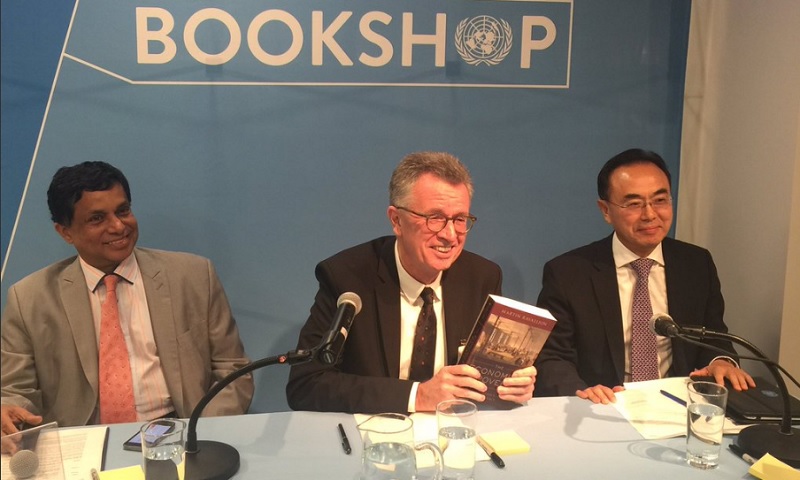
Strategies for eradicating poverty have evolved over hundreds of years and should continue to develop with new thinking and ideas that include sustainable development for all. No “magic bullet” solutions exist to tackle the multidimensional issues of poverty inequality and inclusive economic growth, particularly with an aim to leave no one behind. At a Meet the Author event at the United Nations Bookshop at UN Headquarters in New York on 1 June, Georgetown University Professor of Economics and former Director of the World Bank’s research department, Martin Ravallion, spoke about his new book The Economics of Poverty: History, Measurement and Policy.
The book looks at the history of how poverty was understood from the 18thcentury to the modern day. In that time, poverty has been theorised and revised a number of times, through struggles and politics. The defining and redefining of poverty has also changed how poverty is measured and the policies that are implemented to eradicate it. Today, it is becoming increasingly apparent that rethinking poverty is, again, in order.
Inequality related to poverty is a complex problem that cannot be thought about solely in terms of labour income, which has been the focus of many policymakers. Poverty is multidimensional, and can be caused by non-economic variables like social exclusion, urbanisation and environmental change that also contribute to the problem. Though current social policies have drastically reduced the number of people living in absolute poverty globally over recent decades, the number of relatively poor people has increased. Today’s global economic growth has not been inclusive enough and has left many people behind.
New targets such as the Sustainable Development Goals (SDGs) are needed to re-think poverty eradication. These Goals cannot be evaluated individually; they all need to be monitored together to reduce inequality. Professor Ravallion also highlighted three policy challenges that must be addressed on the path to eradicating poverty: effective social safety nets, increased urbanization and migration, and changed metrics to understand relative poverty.
Professor Ravallion was joined by UNDESA Development Policy and Analysis Division (DPAD) Director Pingfan Hong who shared his own experiences with poverty and economic growth. The book launch was held alongside the annual Expert Group Meeting on Strategies for Eradicating Poverty to Achieve the SDGs, taking place 1-3 June and organized by UNDESA Division for Social Policy and Development (DSPD).
To learn more about the EGM on “Strategies for Eradicating Poverty to Achieve the SDGs,” please click here.
The Economics of Poverty is available from Oxford University Press.
Source & Copyright: UNDESA
 Welcome to the United Nations
Welcome to the United Nations